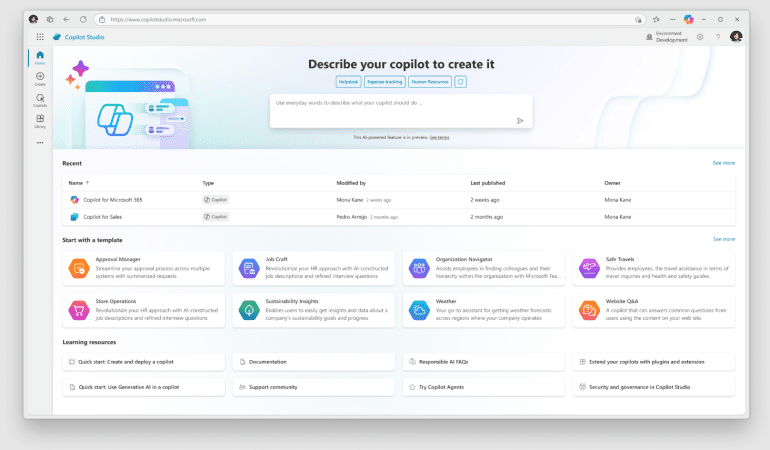- Microsoft unveils major upgrades to Azure AI Studio and Copilot Studio.
- Azure AI Studio now offers pay-as-you-go inference APIs for building AI-powered apps.
- Integration with Microsoft Purview enhances data governance and security.
- Copilot Studio introduces Copilot agents for autonomous task orchestration.
- Extensions and connectors enable customization of AI-powered copilots.
Main AI News:
Microsoft has unveiled significant enhancements to its suite of platforms designed for creating AI-powered applications. At the forefront of this enhancement wave are Azure AI Studio and Copilot Studio.
Azure AI Studio serves as a pivotal toolset embedded within Microsoft’s Azure OpenAI Service. This empowers customers to seamlessly integrate cutting-edge AI models, such as the recently unveiled GPT-4o from OpenAI, with their proprietary data. The result? A versatile environment for crafting intelligent chat assistants and a myriad of other data-driven applications. Meanwhile, Copilot Studio steps up to facilitate seamless integration with Copilot for Microsoft 365 — the AI-driven assistant found within popular applications like Excel, Word, and PowerPoint, as well as Microsoft Edge and Windows.
Azure AI Studio, now universally available, is set to revolutionize the landscape by enabling developers to construct AI-powered applications through flexible pay-as-you-go inference APIs. Termed as “model-as-a-service,” this innovation unlocks access to a host of generative AI models hosted on Azure infrastructure. Initial offerings include models from Nixtla and Core42, with future expansions slated to incorporate contributions from Cohere, Stability AI, and AI21 Labs.
Not stopping there, Azure AI Studio introduces a suite of cutting-edge capabilities aimed at streamlining the development and maintenance lifecycle of generative AI-powered applications. From facilitating training and debugging processes to offering comprehensive monitoring tools for production environments, users can now ensure the seamless operation and optimization of their AI-driven solutions.
Furthermore, Azure AI Studio integrates seamlessly with Microsoft Purview, enhancing data governance by identifying and mitigating potential “data risks” within AI applications. This includes measures to enforce encryption on sensitive data and prevent unauthorized access across diverse applications and services. Notably, the platform also introduces innovative safeguards against “jailbreaks” and hallucinations within AI models, ensuring the integrity and reliability of these systems.
On the Copilot Studio front, Microsoft introduces a groundbreaking concept with Copilot agents. These intelligent bots, armed with contextual awareness and adaptive capabilities, autonomously orchestrate tasks tailored to specific roles and functions. Leveraging user feedback and continuous learning, Copilot agents streamline business workflows, promising increased efficiency and productivity across diverse organizational contexts.
Additionally, Copilot Studio introduces extensions and connectors, empowering developers to customize AI-driven copilots to suit specific business needs. Extensions enable the integration of domain-specific knowledge and actions, while connectors facilitate seamless access to organizational data from various sources. With these enhancements, Microsoft is paving the way for a new era of intelligent automation and collaboration within enterprise environments.
Conclusion:
Microsoft’s latest advancements in AI app development signify a significant leap forward for the market. By offering enhanced tools and capabilities through Azure AI Studio and Copilot Studio, Microsoft is empowering developers to create more intelligent, efficient, and secure applications. This not only boosts productivity within organizations but also sets a new standard for AI-driven innovation in the industry, positioning Microsoft as a key player in the evolving landscape of app development and automation.

